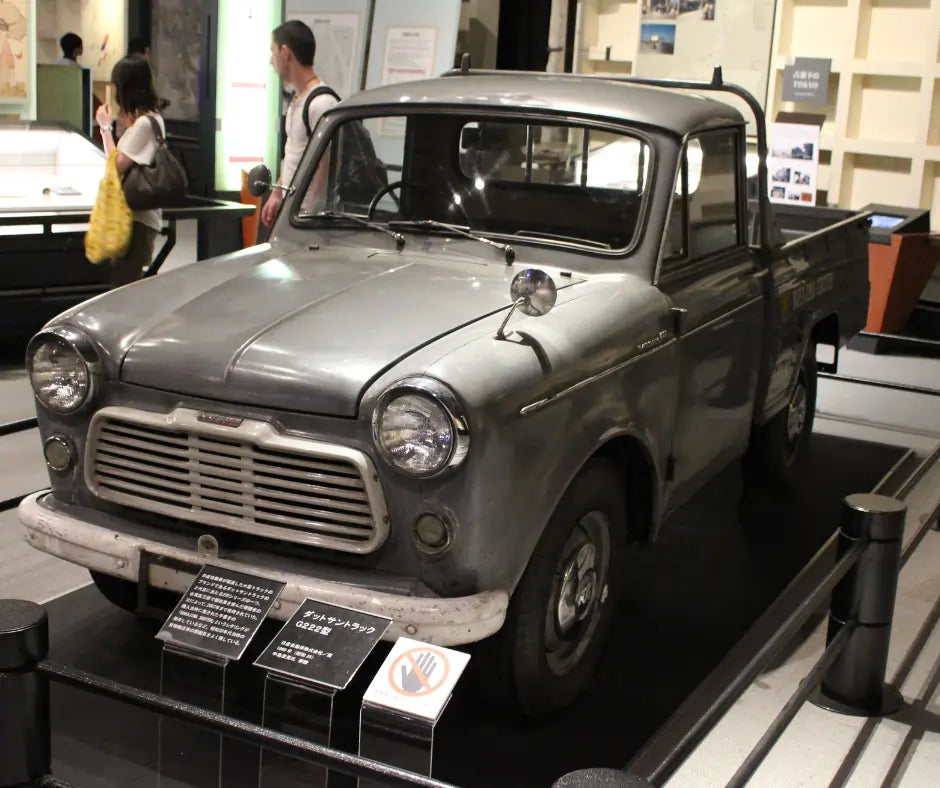Datsun’s Rebranding Journey
Datsun, a name that resonates with automotive enthusiasts around the globe, has a storied history that stretches back to the early 20th century. Initially introduced in 1931, Datsun quickly became synonymous with affordable, reliable, and efficient vehicles. The brand gained substantial popularity, particularly in markets like the United States, where it became a household name in the 1960s and 1970s.
However, by the mid-1980s, the Datsun name was phased out in favor of Nissan, its parent company. In 2012, Nissan announced the revival of the Datsun brand, aiming to target emerging markets with a new line of economical and practical vehicles. This rebranding effort was not merely about resurrecting an old name but about reinventing the brand while staying true to its roots.
The journey of Datsun's rebranding is a fascinating tale of balancing heritage with modernity, leveraging nostalgia while addressing contemporary market needs, and revitalizing a legacy brand for a new generation of drivers. At Resurrected Classics, we provide new Datsun parts, and here we look at this company’s remarkable rebranding journey.
Understanding The Need For Rebranding
Nissan's decision to revive Datsun was driven by a strategic need to address the growing demand for affordable vehicles in emerging markets such as India, Indonesia, Russia, and South Africa. The automotive landscape in these regions was rapidly evolving, with a significant population seeking reliable, cost-effective transportation solutions. By bringing back Datsun, Nissan aimed to capture this market segment with a brand that already had a history of providing value-driven vehicles.
The Rebranding Strategy
Rebranding Datsun was not just about introducing new cars under an old name; it was about creating a distinct identity that would resonate with modern consumers while reflecting the brand's historical values of reliability and affordability. This required carefully analyzing market trends, consumer expectations, and the competitive landscape and following this detailed strategy:
- Emphasizing Heritage
One critical strategy in Datsun's rebranding was to leverage its rich heritage. The brand's legacy of producing durable and economical cars provided a solid foundation. By emphasizing its historical roots, the company aimed to create a sense of nostalgia and trust among potential buyers. This approach was beneficial in markets where consumers had a prior positive association with the brand.
- Modern Design And Technology
While heritage was a cornerstone of the rebranding strategy, it was equally crucial for Datsun to present itself as a modern and forward-thinking brand. The new Datsun models featured contemporary designs, advanced technology, and modern safety features. This blend of old and new was crucial in appealing to a diverse audience, from older consumers who remembered the brand's past to younger buyers looking for stylish and affordable vehicles.
- Affordability And Value
Staying true to its roots, the company positioned itself as a provider of affordable and value-for-money vehicles. This was achieved through cost-effective manufacturing processes, strategic sourcing of components, and a focus on essential features that mattered most to target consumers. By maintaining a competitive price point, they could attract budget-conscious buyers without compromising on quality or reliability.
- Tailored Marketing Campaigns
Datsun's marketing campaigns were carefully tailored to resonate with the target audience in each market. In India, for example, the emphasis was on its cars' practicality and fuel efficiency, while in Russia, the focus was on the brand's durability and ruggedness. The brand created more effective and impactful marketing messages by understanding and addressing consumers' unique needs and preferences in different regions.
- Building A Community
Another critical aspect of its rebranding strategy was building a community of loyal customers and brand advocates. They achieved this through various initiatives such as customer engagement events, social media interactions, and creating a dedicated online platform for Datsun owners. By fostering a sense of belonging and community, the company strengthened its brand loyalty and promoted by word-of-mouth.
Challenges and Adaptations
Some challenges the company faced were:
Successful Outcomes
With its targeted and well planned approach, Datsun was successful in achieving:
- Market Penetration
Despite the challenges, the company achieved significant market penetration in its target regions. For example, the Datsun GO and GO+ became popular for first-time car buyers in India thanks to their affordability and practical features. Similarly, its new models were well-received in Indonesia and Russia, helping the brand establish a solid presence.
- Brand Recognition
The rebranding efforts significantly boosted the company’s brand recognition. Blending its historical legacy with modern attributes created a unique identity in the crowded budget car market. Strategic marketing campaigns and customer engagement activities further enhanced the brand's visibility.
- Customer Satisfaction
Customer satisfaction played a crucial role in the success of Datsun's rebranding journey. The company built a loyal customer base by focusing on delivering reliable, value-for-money vehicles and providing excellent after-sales service. Positive customer experiences translated into solid word-of-mouth recommendations, further boosting the brand's reputation.
An Impressive Journey
Datsun's rebranding journey is a testament to the power of strategic reinvention. Datsun successfully navigated the complexities of re-entering the market by leveraging its rich heritage, embracing modern design and technology, and staying true to its core values of affordability and reliability. The brand's ability to adapt to changing market conditions, address consumer needs, and create a strong community of loyal customers has been vital to its resurgence.
If you own a Datsun, you know you have a classic car that embodies a rich legacy. When it comes to maintaining your vehicle, investing in fitting spare parts is crucial.
At Resurrected Classics, we understand the value of your Datsun and offer high-quality parts to ensure your classic car remains in top condition. If you want genuine, high-quality Datsun spare parts, call us at these numbers- Sales: 770-361-8955/Parts: 770-361-8955. You can also email us using this Contact Us form.


